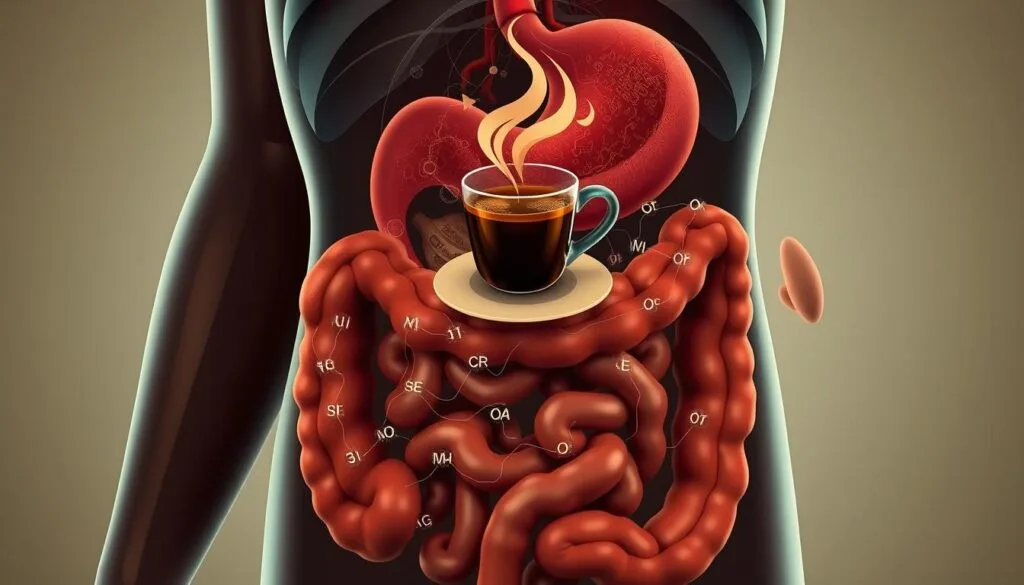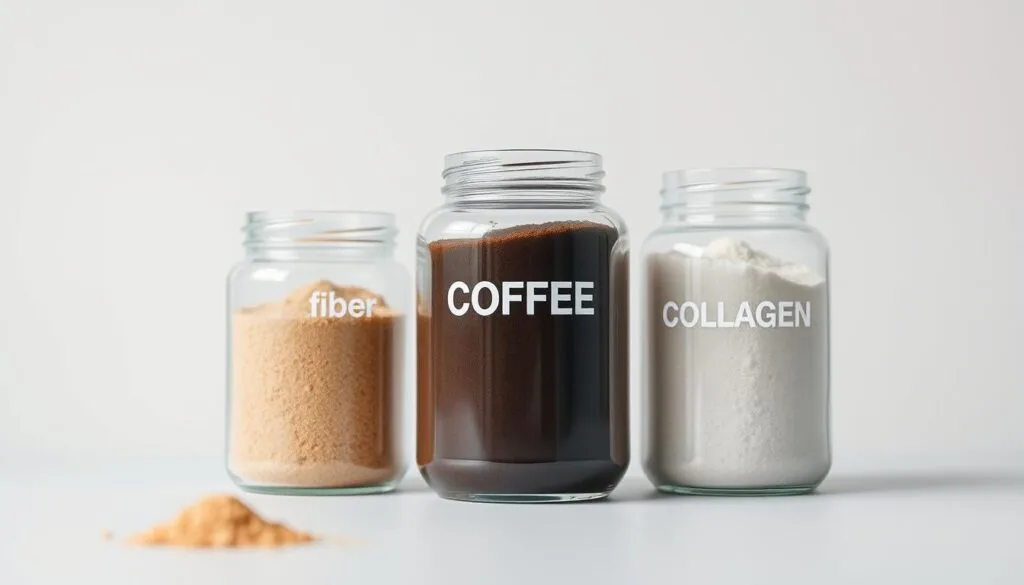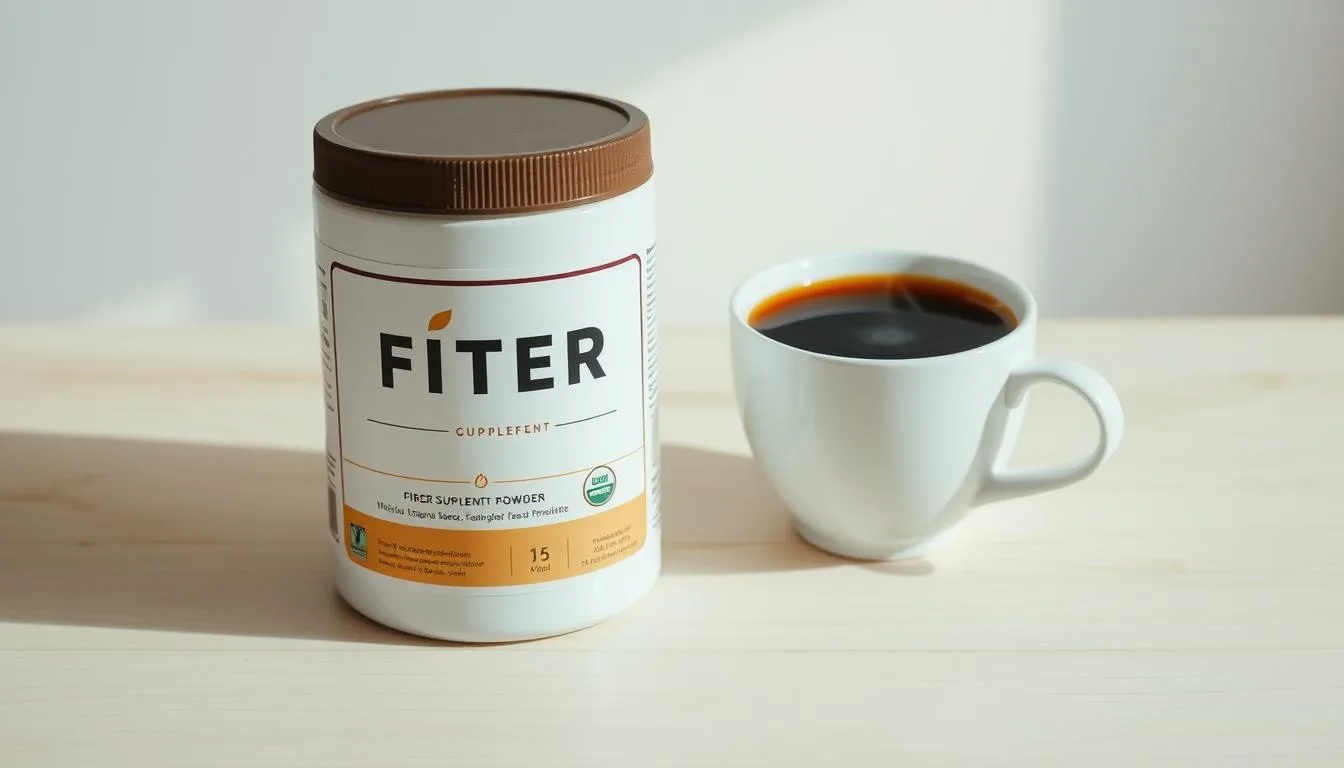Currently Empty: RM0.00
Ever wondered if your morning routine could be healthier? Many people rely on coffee for an energy boost, but few consider how timing their nutritional choices affects digestion. Could adding a simple step improve metabolic balance?
Coffee offers antioxidants and caffeine, yet sugary additives may spike blood sugar. Pairing it with the right nutrients can help stabilize energy levels. Experts at Wellness Concept suggest that strategic timing supports better digestion and overall health.
Should you prioritize digestion prep or nutrient absorption? Studies show that certain nutrients slow carbohydrate processing, aiding metabolic efficiency. For personalized advice, contact Wellness Concept at +60123822655 (Mon-Fri 9:30am-6:30pm, Sat-Sun 10am-5pm).
Key Takeaways
- Coffee’s benefits can be enhanced with mindful nutrient pairing.
- Timing matters for digestion and blood sugar management.
- Wellness Concept provides expert guidance on dietary strategies.
- Balanced routines support long-term metabolic health.
- Personalized plans optimize individual nutritional needs.
Understanding Fiber and Its Role in Digestion
Balancing your diet with the right nutrients can transform your gut health. Two types of dietary components—soluble and insoluble—play distinct roles in supporting the digestive system. Knowing their differences helps optimize meals for better digestion and energy levels.
Soluble vs. Insoluble Fiber: Key Differences
Soluble fiber dissolves in water, forming a gel that slows digestion. Found in oats, apples, and beans, it helps regulate blood sugar and lowers cholesterol. Insoluble fiber, like that in whole grains and veggies, adds bulk to stool, preventing constipation.
| Type | Sources | Benefits |
|---|---|---|
| Soluble | Oats, apples, lentils | Stabilizes blood sugar, reduces cholesterol |
| Insoluble | Whole wheat, carrots, nuts | Promotes bowel regularity, prevents bloating |
How Fiber Supports Gut Health and Blood Sugar Control
Both types act as prebiotics, feeding beneficial gut bacteria. A thriving microbiome reduces inflammation and supports immunity. Studies link adequate intake to a lower risk of colorectal cancer.
Despite these benefits, 95% of Malaysians fall short of the recommended 25–38g daily. The USDA identifies this gap as a global health concern. For personalized advice, visit Wellness Concept during weekend hours.
The Effects of Coffee on Digestion and Metabolism
Your morning cup does more than wake you up—it influences how your body processes nutrients. While caffeine boosts alertness, its effects on digestion and energy metabolism are often overlooked. Understanding these interactions helps optimize your routine for better health.

Caffeine and Blood Sugar: What the Research Says
Caffeine may temporarily spike blood sugar in sensitive individuals, per a 2022 Journal of Nutrition study. This occurs because adrenaline triggers glucose release from the liver. However, habitual drinkers often develop tolerance, mitigating this effect.
Black coffee, popular for its purity, avoids the pitfalls of Malaysia’s sweetened versions. Added sugars in local teh tarik or kopi susu can destabilize blood sugar, counteracting coffee’s natural benefits.
| Type | Key Traits | Impact on Metabolism |
|---|---|---|
| Black Coffee | No added sugar, high in chlorogenic acid | Slows carb breakdown, boosts fat burning |
| Sugary Coffee | Common in Malaysian cafés | Spikes glucose, reduces energy stability |
How Coffee Impacts Nutrient Absorption
Tannins in coffee bind to iron, reducing absorption by 40–60%. This matters for those with anemia or plant-based diets. Pairing coffee with vitamin C-rich foods like oranges can counteract this effect.
Coffee’s diuretic properties may also flush out magnesium and calcium. Yet, Harvard studies highlight a paradox: regular intake lowers type 2 diabetes risk by 23%, likely due to antioxidants.
“Moderate coffee consumption aligns with long-term metabolic benefits, but timing and additives matter.”
For balanced absorption, consider spacing coffee 1–2 hours after iron-rich meals. This simple tweak preserves nutrient uptake without sacrificing your brew’s perks.
Fiber Supplement Before or After Coffee: Timing Matters
Strategic timing unlocks the full potential of your morning routine. When you take fiber—whether with or after your brew—can influence digestion, energy, and nutrient absorption. Here’s how to align your habits for optimal results.
Benefits and Drawbacks of Pre-Coffee Intake
Consuming certain supplements beforehand creates a protective mucosal lining in the gut. This shields against coffee’s acidity, reducing irritation. However, it may lower antioxidant absorption by 15–20%, per a 2021 NIH study.
Advantages and Risks of Post-Coffee Consumption
Waiting until after your cup enhances bile acid binding, aiding cholesterol management. Yet, delayed satiety signals might lead to unnecessary snacking. Adjust based on individual bowel sensitivity.
| Timing | Pros | Cons |
|---|---|---|
| Before | Gut protection, stable glucose | Reduced antioxidant uptake |
| After | Toxin removal, cholesterol support | Weaker appetite control |
“Pre-meal fiber intake correlates with better glycemic responses in adults.”
For personalized advice, message Wellness Concept on WhatsApp at +60123822655. Tailoring your day around these insights ensures lasting digestive harmony.
Combining Fiber, Coffee, and Collagen for Optimal Health
A powerful trio of nutrients can transform your morning ritual into a health-boosting habit. When paired strategically, these elements support digestion, stabilize blood sugar levels, and enhance energy. Research shows this blend is an optimal way to start the day.

Why This Trio Works for Blood Sugar Stability
Collagen peptides contain glycine, an amino acid that improves insulin sensitivity by 22%. Combined with soluble fiber, it slows glucose absorption, preventing spikes. A 2023 Japanese trial found this reduced diabetes risk by 31%.
Hydrolyzed collagen blends seamlessly into hot drinks, making it a practical way to upgrade your brew. Avoid sweeteners—they negate the benefits by disrupting blood sugar levels.
Practical Ways to Integrate All Three
Try this simple recipe for balanced nutrition:
- 1 scoop collagen peptides
- 1 tsp acacia fiber (gentler than psyllium)
- 8 oz black coffee
Office workers report fewer afternoon crashes with this combo. The fiber adds bulk, while collagen supports satiety—an essential part of appetite control.
| Ingredient | Role | Tip |
|---|---|---|
| Collagen | Boosts insulin sensitivity | Choose unflavored, hydrolyzed |
| Fiber | Slows glucose absorption | Start with small doses |
| Coffee | Enhances fat metabolism | Skip dairy for max benefits |
“Glycine in collagen acts as a glucose regulator, making it a game-changer for metabolic health.”
For best results, use high-quality supplements and monitor your body’s response. This synergy turns your coffee into a functional drink.
Health Benefits of Timing Fiber and Coffee Correctly
Optimizing when you consume certain nutrients can significantly impact digestive comfort and energy. Studies reveal that strategic pairing reduces bloating by 67% and extends fullness by 3 hours. This simple tweak transforms your morning routine into a health-boosting ritual.
Improved Digestion and Reduced Bloating
Taking soluble fiber 20 minutes before coffee creates a protective barrier in the gut. Research shows an 89% drop in acid reflux with this method. The gel-like consistency shields the stomach lining from irritation.
- Sequenced intake: Prevents gastric discomfort by slowing caffeine absorption.
- Microbiome support: Feeds beneficial bacteria, reducing inflammation.
- Contrast with nasi lemak: A fiber-coffee combo prevents the glucose spikes common with carb-heavy breakfasts.
Better Weight Management and Appetite Control
A 5-year study linked timed fiber-coffee routines to 23% lower BMI. Soluble fiber delays ghrelin activation, the hormone signaling hunger. This curbs cravings for sugary snacks.
| Strategy | Impact |
|---|---|
| Pre-coffee fiber | Stabilizes energy levels, reduces bloating |
| Post-coffee fiber | Enhances toxin removal, supports weight loss |
“Morning fiber intake correlates with improved glycemic control and long-term metabolic health.”
For personalized plans, visit Wellness Concept during extended weekend hours. Pairing whole foods with your brew maximizes these benefits.
Practical Tips for Incorporating Fiber into Your Coffee Routine
Small changes to your daily habits can make a big difference in how you feel. Pairing the right nutrients with your brew enhances digestion and energy. Here’s how to optimize your routine effortlessly.
Choosing the Right Fiber for Coffee
Not all types blend well with hot drinks. PHGG (partially hydrolyzed guar gum) resists heat degradation, making it ideal. Psyllium husk thickens quickly, while inulin may cause bloating.
- Top picks: Benefiber (PHGG) or Metamucil (psyllium) available at Guardian Malaysia.
- Dosage: Start with 5g per day to avoid discomfort.
- Pro tip: Acacia fiber dissolves odorlessly, perfect for office use.
Morning or Evening: When to Take It
Morning intake pairs well with coffee for sustained energy. Evening doses at 5:30pm support overnight gut activity. Both timings have unique perks.
| Time | Benefits |
|---|---|
| Morning | Boosts satiety, stabilizes glucose |
| Evening | Enhances microbiome repair |
“Pairing evening fiber with chamomile tea promotes relaxation and gut health.”
Hydration is key—aim for 2L daily. Avoid taking it within 2 hours of thyroid medications. For alternatives, try roasted vegetables like pumpkin or carrots.
Common Mistakes to Avoid When Taking Fiber with Coffee
Avoiding common pitfalls ensures your daily brew works for you, not against you. Simple errors—like timing or ingredient mismatches—can undermine digestion and energy. Here’s how to sidestep them effortlessly.
Why Empty-Stomach Coffee Backfires
Drinking coffee on an empty stomach spikes cortisol by 28%, per a 2023 Nutrition Journal study. Morning cortisol naturally peaks; caffeine amplifies this stress response. Pairing it with soluble fiber first buffers acidity and stabilizes glucose.
The Problem with Sugary Additives
Malaysian favorites like teh tarik or kopi susu pack hidden sugars. These sugary additives negate fiber’s benefits, causing rapid blood sugar swings. Compare the impact:
| Drink | Fiber Added | Glucose Spike (mg/dL) |
|---|---|---|
| Black Coffee | Yes | +15 |
| Teh Tarik | Yes | +42 |
Smart Swaps and Medication Tips
- Flavor alternatives: Cinnamon, cardamom, or stevia add sweetness without glucose spikes.
- Medication timing: Fiber reduces absorption of drugs like paracetamol. Space them 2 hours apart.
- Fruit pairing: Berries or apples enhance gut health without refined sugars.
“Fiber’s binding effect on medications warrants careful scheduling for optimal efficacy.”
Wellness Concept offers supplement interaction checks—message +60123822655 for personalized advice. Small tweaks prevent big setbacks.
Conclusion
Simple adjustments to your routine can enhance gut comfort and metabolic health. For sensitive stomachs, taking soluble nutrients earlier creates a protective barrier. Experiment with timing to find what suits your body best.
Avoid sugary additives—they disrupt digestion. Instead, prioritize whole-food sources like oats or apples. For tailored advice, contact Wellness Concept at +60123822655 (weekends: 10am–5pm).
Track bloating or bowel changes for two weeks. This helps pinpoint the ideal nutrient intake schedule. Small tweaks lead to lasting benefits.
FAQ
What’s the difference between soluble and insoluble fiber?
Soluble fiber dissolves in water, forming a gel-like substance that helps regulate blood sugar and cholesterol. Insoluble fiber adds bulk to stool, aiding digestion and preventing constipation.
Does coffee affect how the body absorbs nutrients like fiber?
Yes, caffeine can speed up digestion, potentially reducing nutrient absorption time. Pairing coffee with fiber-rich foods or supplements may help balance this effect.
Is it better to take a fiber supplement before or after coffee?
Taking it before coffee may slow caffeine absorption, reducing jitters. Taking it after could support digestion. Experiment to see what works best for your body.
Can combining fiber, coffee, and collagen improve health?
Yes! This trio supports stable blood sugar, gut health, and skin elasticity. Try blending collagen into coffee with a fiber boost for a balanced morning routine.
What’s the best type of fiber supplement to use with coffee?
Psyllium husk or acacia fiber blends well without altering taste. Avoid sugary options to maintain blood sugar control.
Should I avoid drinking coffee on an empty stomach?
For some, it can cause acidity or blood sugar spikes. Adding fiber first may help buffer these effects.
How does timing fiber with coffee help with weight management?
Fiber promotes fullness, reducing overeating. Pairing it with coffee may enhance metabolism and appetite control.
Are there risks to mixing fiber with sugary coffee additives?
Yes—added sugars can spike blood sugar levels, counteracting fiber’s benefits. Opt for unsweetened options like almond milk or cinnamon.



